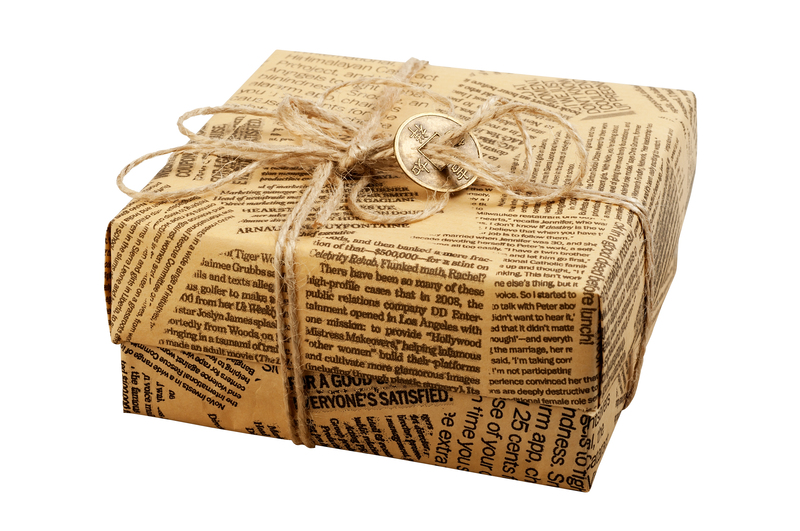Smart Choices for Minimizing Bulky Waste Disposal Costs
Bulky waste disposal can put a significant dent in your household or business budget. Whether it's furniture, appliances, or renovation debris, these oversized items often attract extra charges and service restrictions. Luckily, there are informed and strategic steps you can take to reduce expenses and manage bulky waste sustainably. This in-depth guide provides practical, proven, and sustainable smart choices for minimizing bulky waste disposal costs while benefiting your community and the environment.

Understanding Bulky Waste and Its Disposal Costs
Before tackling ways to cut down on bulky waste removal costs, it's important to understand what falls under "bulky waste" and why the costs tend to be higher. Bulky waste typically refers to large household or commercial items that are too big for regular trash collection. Common examples include:
- Old sofas, couches, mattresses, and beds
- Large appliances such as refrigerators, ovens, and washing machines
- Construction debris - drywall, toilets, bathtubs, cabinetry
- Outdoor items - patio furniture, barbecue grills, tree branches
Bulky waste disposal costs fluctuate based on:
- Volume and weight of the items
- Distance to landfill or recycling center
- Local regulations and landfill fees
- Special handling requirements (e.g., refrigerant removal from fridges)
- Availability of municipal collection services
- Third-party hauling charges
Given these variables, finding effective ways to minimize bulky waste disposal costs can deliver substantial savings--sometimes even eliminating costs altogether.
1. Assess and Plan Ahead for Bulky Waste Disposal
Planning is the cornerstone of affordable bulky waste management. Instead of waiting until you're desperate to discard an item, take a proactive approach:
- Take inventory of bulky items in advance (especially before moving, renovating, or spring cleaning)
- Research local disposal and recycling facilities, pickup schedules, and fees for bulk disposal
- Check your waste collection calendar for free or discounted bulky item pickup days
- Group and dispose items together to optimize pickups and reduce per-item fees
Benefits of Early Planning:
- Allows time to find cost-effective or free disposal solutions
- Prevents last-minute, expensive emergency pickups
- Enables you to explore alternative disposal methods, such as reuse or donation
2. Embrace Reuse, Repurposing, and Donation
Reducing bulky waste hauling costs starts with keeping items out of the waste system in the first place. Many bulky items can enjoy a second life through:
- Online Marketplaces - Sell or offer for free on platforms such as Craigslist, Facebook Marketplace, or OfferUp.
- Charity Donations - Organizations like Habitat for Humanity ReStore, Salvation Army, or local shelters often accept furniture and appliances in good condition.
- Community Swap or Freecycle Events - Local events and online groups (like Freecycle.org) facilitate the giving and receiving of unwanted items.
- Creative Repurposing - Before discarding, consider if you can repurpose the item (turning a wooden door into a table, for example).
Many charities offer free pickup for bulky donations, allowing you to save on disposal costs and help your community. Donating not only minimizes your expenses but contributes to environmental sustainability by reducing landfill waste.
3. Explore Manufacturer and Retailer Take-Back Programs
Some appliance retailers and furniture stores offer to haul away your old bulky items upon delivery of a replacement. These take-back programs are often:
- Free or low-cost when bundled with your purchase
- Eco-friendly – the company may recycle or refurbish the item
For electronics and appliances, manufacturers may also provide recycling drop-off locations or mail-in services. Check with the retailer or brand before buying a new item.
4. Participate in Community Bulky Waste Collection Events
Municipalities and neighborhood associations often host special bulky waste pick-up days or community clean-up events. These usually provide:
- Free or subsidized pickup for residents
- Drop-off events for a variety of items, including e-waste and hazardous materials
Stay informed about local event schedules by subscribing to municipal newsletters or following your city's website and social media pages. Participating in these events is one of the best smart ways to cut bulky waste costs.
5. Consider DIY Bulk Waste Removal
If you have access to a vehicle and time to spare, doing it yourself can minimize your bulky waste removal expenses significantly. Here's how:
- Transport items to city transfer stations or recycling centers – many charge by the load or by weight, which is usually less expensive than hiring a third party
- Coordinate with friends or neighbors to share vehicle and dump fees for a cost-effective solution
- Sort items so recyclables and liable items are separated, as this can sometimes reduce your total fees
Pro tip: Always call ahead to check for restrictions, hours, documentation needed (like proof of residency), and accepted payment methods.
6. Rent Dumpsters or Skip Bins Strategically
For major cleanouts and renovations, dumpster rental can be cheaper than multiple hauling trips. However, prices and value can vary greatly. Here's how to maximize savings:
- Shop around for the best dumpster or skip bin deal in your area
- Select the correct size - too large, and you pay for excess capacity; too small, and you risk overage fees
- Load items efficiently to maximize each cubic yard
- Coordinate with neighbors for a shared dumpster rental - split the costs for mutual benefit
- Ask about recyclable/green waste rates (yard debris, scrap metal, appliances might qualify for discounts)
By using this method judiciously, you ensure that you only pay for what you actually need and avoid unnecessary trips or fees.
7. Sort and Recycle Where Possible
Sorting your bulky waste before disposal can be a powerful cost-reducing strategy:
- Separate scrap metal, electronics, and appliances from general trash
- Take recyclables to specialist recycling centers, which may accept certain items for free or even pay you per pound
- Some centers offer zero-cost drop-off for mattresses, tires, or electronics
Recycling not only lowers costs but keeps valuable materials in circulation, reducing environmental footprint and demand for new resources. Always check your city's website for accepted items.
8. Avoid Fines and Hidden Fees
Nothing inflates bulky waste removal costs like fines or extra charges due to:
- Placing items at curbside on the wrong day or without proper notice
- Exceeding weight or volume limits
- Failing to prep items per municipal or hauler guidelines (for example, appliance doors not removed)
Always review local rules and your chosen hauler's policies before setting items out. A bit of research can prevent surprise fees and ensure a smooth pickup.
9. Negotiate With Third-Party Haulers
If using a junk removal service or local hauler, remember that pricing can be flexible. To get the most value:
- Request multiple quotes from competitors
- See if haulers offer savings for grouped pickups, off-peak days, or cash payment
- Ask about price breaks for already sorted items
- Consider combining services with neighbors or friends
Negotiation and comparison shopping can unlock substantial discounts and free extras (like quick sweep-up or multiple item pickups).
10. Consider Renting or Sharing Instead of Buying
One of the smartest choices for minimizing future bulky waste removal costs is to avoid accumulating unneeded items. Strategies include:
- Rent appliances or furniture for temporary needs (such as hosting guests or staging a home)
- Utilize tool libraries and community sharing platforms, reducing the number of goods you have to eventually throw away
This approach nurtures a minimalist lifestyle and ensures that when you do have to part with larger items, you're dealing with much less volume – and significantly lower disposal fees.
Bulky Waste Disposal: A Quick Comparison of Cost-Saving Options
- Reuse, resale, donation: $0 or even net positive
- City pickup programs: $0-$50 per load
- DIY drop-off at landfill/recycling center: $10-$70 per load (depending on location/weight)
- Dumpster or skip rental: $200-$500 per project, split further if shared
- Junk removal company: $100-$600+ (varies with labor, volume, and locality)
These figures are approximate and depend on your location, but give a sense of the potential savings from making an informed choice.

Harness Technology for Efficient Bulky Waste Management
Today's digital tools make it easier than ever to save on bulky item disposal charges:
- Apps like Nextdoor or social platforms let you quickly find neighbors interested in unwanted items
- Recycling center finders (e.g., Earth911) can help you locate the best drop-off locations nearby
- Municipal websites or apps keep you updated on pickup schedules and acceptable items
By leveraging these resources, you can streamline your bulk waste reduction process and avoid costly mistakes or missed opportunities for cost-free disposal.
Conclusion: Making Smarter, Greener, and More Affordable Decisions
With the right knowledge and foundation, minimizing bulky waste disposal costs is entirely achievable. To recap, here are the top strategies:
- Plan ahead and research your local options
- Donate, sell, or repurpose items when possible
- Use community programs and hauling events
- Sort and recycle to reduce landfill rates
- Negotiate with haulers or rent dumpsters as needed
By adopting these smart choices for minimizing bulky waste removal costs, you save money, help the environment, and may even discover ways to assist others in your community. The next time you're facing a mountain of unwieldy old furniture or appliances, you'll know how to handle it affordably, responsibly, and stress-free.
Key Takeaways for Minimizing Bulky Waste Disposal Costs
- Be proactive, not reactive
- Favor community and charity solutions whenever possible
- Leverage technology and municipal services
- Always confirm guidelines to avoid surprise fees
With informed planning and a little creativity, bulky waste disposal doesn’t have to be a financial burden. Start implementing these tips today and enjoy cleaner spaces and lower bills tomorrow!
